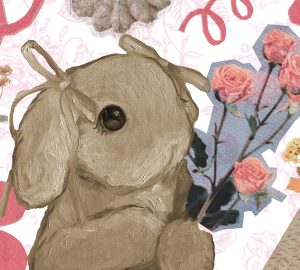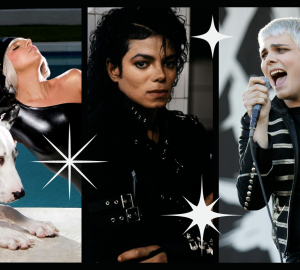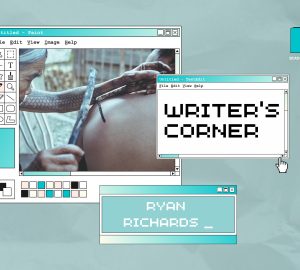The Writer’s Corner features poetry, essays, short stories, satire and various fiction and non-fiction from SCAD Atlanta students. To submit your own work for the Writer’s Corner, email features@scadconnector.com.

‘Sessions’ by Amanda Glover
“Hold the elevator!” I called out, charging towards the door. I wasn’t late for anything. I just wanted to get out of the building. Dr. Fawn was pressing me to talk about what I remembered about my parents, but it’s hard to remember what you never truly had.
“Thank you,” I said sliding into the elevator. I didn’t realize who it was that held the door until he spoke, “You’re welcome.”
He was a regular patient here as well. I’ve heard him speak to the receptionist in the main office, but we’ve never spoken to each other before. Our past interactions involved head nods, brief half-smiles and the occasional eye roll whenever a patient had a breakdown in the waiting area.
Before today, I’d only observed him from a distance. I’d noticed his shoulder-length dark hair, the thickness of his eyebrows and how they shade his eyes. He always wore a jacket, whether it was made of denim, corduroy or leather. Now that we’re only two feet apart, I notice the length of his eyelashes, how intense his green eyes are and the lines that form by his eyes when he smiled at me.
I tried smiling back, but my face was still red from the crying spell I broke into during my session.
“Rough day?” he asked.
I clutched my purse to my chest, pressing my back against the wall. “You can say that.”
He raised his eyebrows, wrinkling his forehead. “You want to talk about it?”
The elevator let us out on the first floor. “How much time do you have?”
He smiled again. “As long as you need to feel better.”
I took him to the restaurant where I waitress called: ‘Misty’s Fine Dining‘. I ordered the buffalo chicken sandwich and a Caesar side salad. He ordered a bowl of tomato soup with two sticks of garlic bread.
“You write your own songs?” he asked when I mentioned that I sing and play guitar during open-mic nights.
“Yeah,” I replied. “It’s how I survived my childhood.”
I told him how I’d spent seven years in foster care, and that both my birth parents overdosed before I was 12. I told him how once I turned 18, I left California and spent the next 17 years trying to make my way as a singer in New York City.
He reached across the table to gently grab my hand. Before he could tell me how sorry he felt, I asked him for his life story.
His name is Adam Silva. He’s 44. He sees a therapist to deal with clinical depression and severe anxiety. As much as crowds terrify him, he still agreed to come watch me play at Misty’s. He sat in the front row and smiled as I strummed away on my guitar.
That was our routine. Every Monday after his session, he’d wait for mine to finish. After, we’d go to Misty’s and talk until it was time for me to go on. Sometimes, he’d visit me during my shift, or I’d show up unannounced at his apartment.
The first night I fell asleep in his arms was the first night I’d felt at home in a long time. I was nervous to perform for him anywhere outside the restaurant. I sat on my bed and played a love song I wrote for him. Based on the fact that he refused to look me in the eye the whole time, I assumed he was disgusted.
But the look in his eyes and told me he was sad.
As cliché as it sounds, I’d never met anybody like Adam before. I would tell him about the worst times of my life, and he’d look at me like I was all that mattered. He was the only person in my life who stayed as long as they did.
I found out about Adam’s death after I showed up at his apartment complex to find emergency vehicles lined up.
“Excuse me, sir?” I cried tapping an officer’s shoulder.
“Ma’am, please step back,” he said.
“What happened here?”
“A resident died, but that’s all I can tell you.”
“Please! I need to know—
“Ma’am, I can’t—
“My boyfriend is in there!”
The next time I got on stage at Misty’s, I refrained from looking too hard at the audience. Who I wanted to see, was never coming back.
Adam’s therapist told me what I already knew. His mind was trapped inside a fog, and it wouldn’t stop raining.
I was given a note by his therapist, something he left for me in his apartment. It detailed all the love we showed each other in the last ten months. The first time I read the note, I’d collapsed on the floor and screamed into the carpet. I reread the note a hundred times until I found the right way to tell his story—our story.
I faced my audience, my guitar in hand.
“My name is Riann Malone. I wrote a new song I’d like to play for you guys,” I said. “It’s called: Adam.”

























